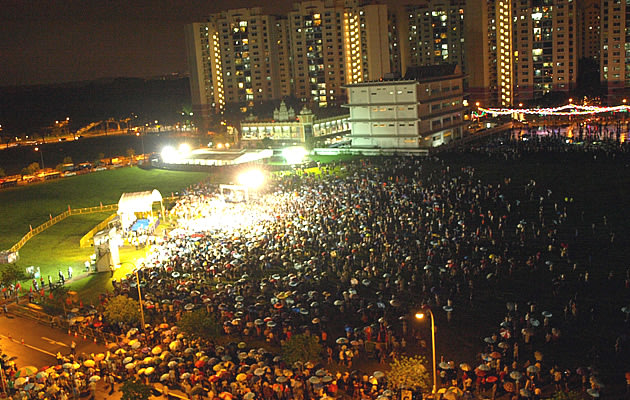The image of police cars in flames and riot police in full gear is a tragic scene that is now embossed into the horrified minds of Singaporeans. Never in 40 years has there been a riot in the secure and safe Singapore that Singaporeans are proud of. Of course, it is being argued now that the riots were caused by a minority of foreign workers and that most here are law-abiding and some were even heroes trying to stop the rioters from hurting people. The authorities have taken swift action, arrested and charged 27 men who were directly involved. A Committee of Inquiry (COI) has been set up to investigate the reason behind the riot.
There are a lot of questions being asked on the riot, why did the rioters only attacked uniformed cars and personnel? Rioters in other countries typically take the opportunity to loot shops and steal stuff ? Considering that the Police Force is the authority giving out liquor licenses, why did they give out 374 licenses in the area, and now alcohol is the culprit?
But looking at the bigger picture, the key question that begs to be answered is whether this riot has been preordained with the continuous problems in Singapore?
The most recent incident before this was the July 2013 brutal Kovan murder of a 67-year old owner of a motor workshop and his 43-year old son at their home at Hillside Drive allegedly by a Police Senior Staff Sergeant no less.
Worthy of mention is also the Oct 2013 corruption case of a Singapore diplomat from the Ministry of Foreign Affairs (MFA) by overbilling authorities by S$89,000 by overstating the amount of gift bought for official purposes. Worse still, an assistant director of the Corrupt Practices Investigation Bureau (CPIB), anti-corruption watchdog, was charged with misappropriating S$1.7 million. Part of the money was allegedly used for gambling at the Marina Bay Sands Casino.
In May 2013, the highest ranking civil servant in recent times, the Civil Defense Force (CDF) chief was found guilty of trading contracts for sex. An associate professor of law was also found guilty of abusing his position by having sex with a student and taking gifts from her.
Related to the Little India’s foreign workers riots, there was the Nov 2012 two-days illegal strike by 170 SMRT Chinese bus drivers to protest against pay and living conditions. This was the first strike in Singapore in 25 years. As a warning to the rest, the ring leaders were jailed six-weeks and then deported back to China.
And the list can go on with the Dec 2011 major disruption in SMRT, the flooding of Orchard road in Jun 2010 and escape of the terrorist Mas Selamat.
Sure the Singapore leadership can claim that these are discrete and isolated events, but are they?
A simple benchmarking would be the period of leadership before LHL was appointed the Prime Minister in 2004. Sure there were some difficulties during GCT’s leadership, but a riot and a strike in the space of one year? At least in my mind, it is a clear failure of the current leadership.
So what are the possible causes for the failure in leadership?
1. A group-think mentality and incestuous talent pool
Despite claims to the contrary, the group-think
mentality cannot be swept under the carpet. A disproportionate number of the
ministers are from the SAF, specifically the Transport Minister, the Manpower
Minister, the Minister for Home Affairs & Deputy Prime Minister and even
the Prime Minister himself. Several others are from the Civil Service or
Government related agencies. If you surround yourself with Yes-Men and
Yes-Women, you are just like the Emperor with no clothes.
2. Complacency and money driven view of the world
The self-righteous view of the leadership is that if they provide economic
growth for Singapore, the society would begrudgingly accept their money drive
view of the world and fall in line. The corruption cases are partly influenced
by such a value of chasing money. They obstinately import foreigners into
Singapore to drive growth, making up 1.3 million of the total 5.4 million on the
small island, without due consideration of the consequences of their actions.
The complacency was further demonstrated by a Population
White Paper planning to squeeze 6.9 million into Singapore, which lead to a
large protest at Hong Lim Park un-heard of in Singapore.
3. Focusing on fixing the Opposition, rather than
fixing the problems
With a bruising 2011 General Elections and 2
humiliating By-election defeats, the ruling party has spent more time and
effort trying to discredit the main opposition party than focusing on solving
the problems that they had caused in the first place. Un-necessary air time in
Parliament and state-owned media was used to debate quarterly hawker centre
ceiling cleaning, when the time should have been put to better use. It is
actually ironical and also poetic that the ruling party had a convention on the
same day as the riots, with plans to take the offensive against the opposition
in the next General Elections. People in power are just paranoid of losing
power.
So the final question to ask is whether the Little India riots is the final display of the leadership failure that we will see in Singapore ? I seriously doubt it. More spectacular boo-boos are just waiting to manifest, I just hope no more Singaporeans get hurt.

















